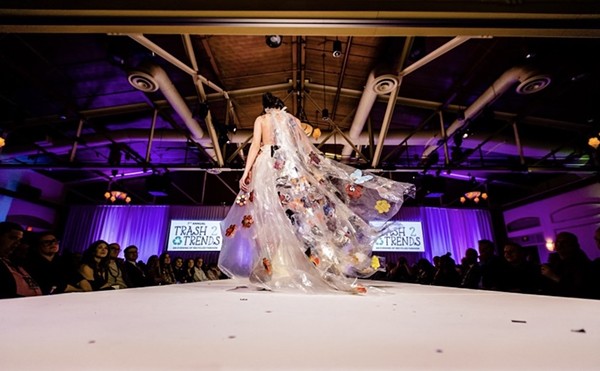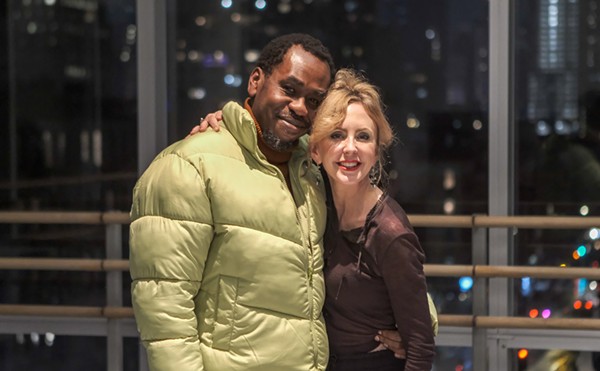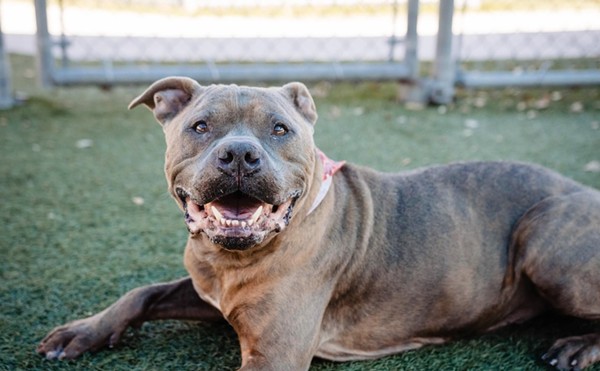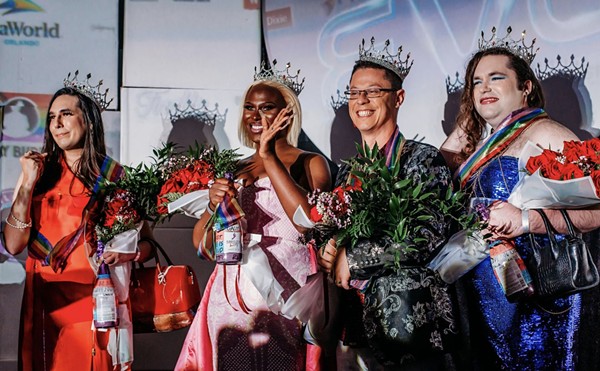Orlando International Fringe Festival finally goes full-time, while the remaining founder heads for the door
Perhaps more than any other recent event, the 7-year-old Orlando International Fringe Festival has provided a spark for a downtown struggling with its identity.
For 10 days each spring, the festival's run of offbeat and sometimes daring drama, comedy and musical acts fills empty storefronts, supports a nightly street fair, drives dinnertime traffic into restaurants used to a lunchtime crowd and proves that, given something interesting to do, thousands of people will pour into the city center night after night. As a unifying force, the Fringe was the impetus behind the nascent Central Florida Theatre Alliance, a group recently handed a theater space by the city; moreover, the Fringe model in no small way influenced Mayor Glenda Hood's optimistic, long-range campaign to create a downtown cultural district anchored by a new performing arts center.
It's good news, then, that the nonprofit festival's board finally has hired and put in place a year-round director, even as the last of the two remaining founders made public his decision last week to leave the festival for other pursuits.
Andy Anthony, executive producer of the Fringe and its co-founder with SAK Theatre's Terry Olson, says "it just seemed to me it was time to be done. The Fringe was a year-round thing for me, and it was keeping me from doing some other things that I had dreams of doing." His departure hands logistical and creative control over to Matt Wohl, co-producer for the past two years, who accepted the festival's first full-time job in June. Wohl's title -- as soon as the board picks one -- will be either producer or executive director.
Previously staffed for less than half the year, the Fringe now has someone on the payroll year-round to sweat the details of fund-raising, artist relations and the nearly constant search for performance venues. Both Anthony and Wohl previously had shared those tasks in the months when they weren't officially employed by the Fringe. "Now," says Wohl, "this actually gives me a chance to do eight or 10 months of work in eight or 10 months."
"I've worked with Matt for two years, and I feel very comfortable in saying that Matt can do this," says Anthony. "He's been trained well. He also has his own ideas. It's his baby, which is nice because having helped start it, it's been my baby for seven years. It's nice to have somebody who has passion for it." Anthony hopes to expand his efforts in screenwriting and film directing and follows Olson, who left before the 1997 Fringe to resume running SAK full time.
For years both men supported the festival on their personal credit cards, carrying over the annual debt -- one year it was $17,000 -- until the arrival of application fees from the hundreds of artists who fill the first-come, first-served performing slots. With a fundraising goal of $50,000 -- and a 1998 festival that broke even -- the board hopes at last to erase old debt and build on firm ground.
Challenges remain. Last year's attendance rebounded to an estimated 40,000 to 50,000 after the 1997 Fringe was hampered by rain and made to move from its original base at Church Street and Orange Avenue. But a return to that anchor site this past spring did not cure all ills. The street fair was forced to share the road with Lymmo buses, and acts booked on a free outdoor stage often missed the mark, when they performed at all. Moreover, while the Fringe has been energized by shows nurtured in local college theater departments, acts with an edge have all but disappeared; the international element of the first few years has similarly faded. And diversity, especially from local Hispanic and African-American performers, is lacking.
Each is among the elements that Wohl hopes to address, with the first being an upgrade of the outdoor shows. "We really couldn't be proactive when we were working on this festival only four or five months," he says. Now they can. Applications for the 1999 festival will be accepted starting Sept. 30.
















